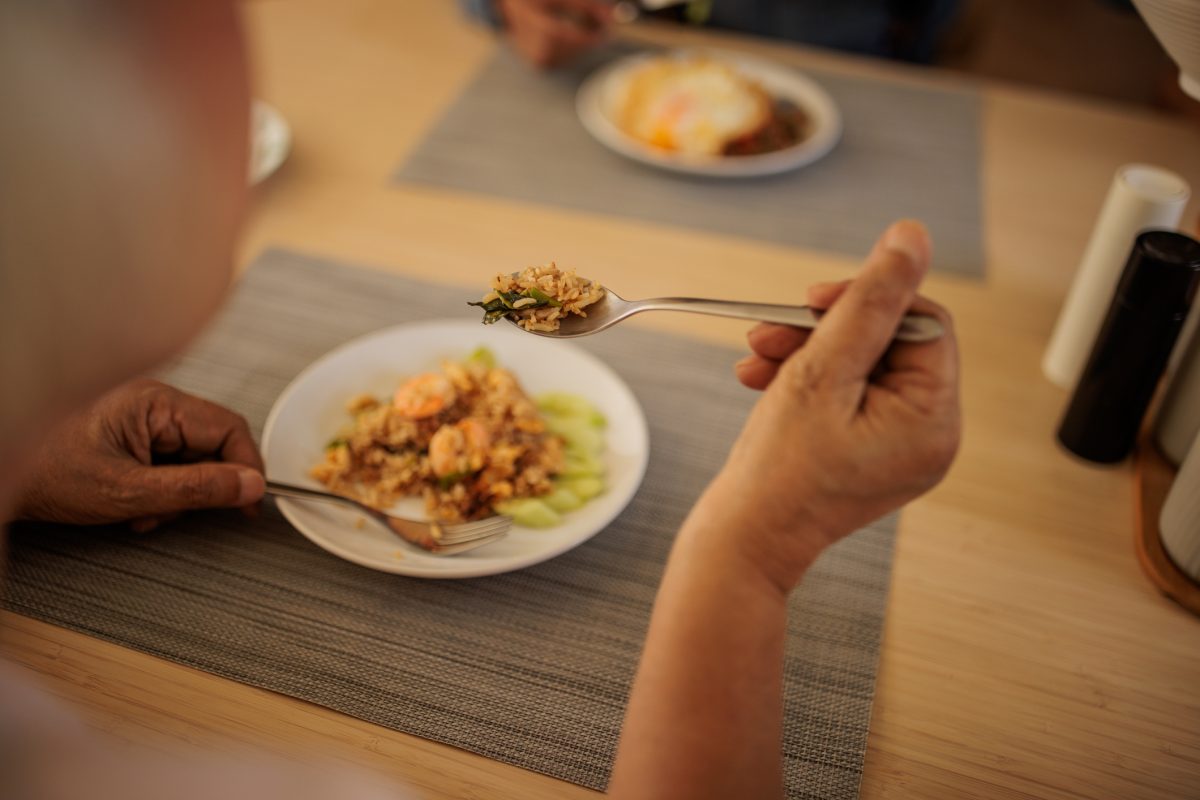Japanese culture offers a wealth of wisdom on how to nourish our bodies.
For example, there’s the Okinawan diet that helps the Japanese live a disease-free life well into their 80s.
Then there’s the principle of ichiju sansai, or “one soup, three dishes,” which the Japanese consider a well-balanced meal.
There’s a third principle that has more to do with how you consume your food than with what you eat.
It’s so healthy and sensible, it’s a wonder everyone isn’t eating this way.
Research is showing that this principle offers significant health benefits to those who practice it.
Eat until you’re 80% full and lose weight
Have you ever finished a luscious dinner but felt so full you couldn’t move?
Then you were not following the principle of hara hachi bu.
Hara Hachi bu literally means “eat until you’re 80 percent full.”
Most of us have no idea what that feels like.
It takes about 20 minutes for the stomach to communicate to the brain just how full it really is. And by then, we’ve eaten so much that we’re “stuffed” — uncomfortably full.
We ignore our body’s natural inclination to stop eating when we’ve had enough, and pretty soon the mechanism that tells us when to stop is broken.
Not only is this unhealthy, but it keeps unhealthy weight on and makes it next to impossible to lose it.
If you’ve been eating this way for years, there is hope of “resetting” your stomach and dropping some unwanted pounds. It won’t happen overnight, but it does work.
“It takes sometimes 15-20 meals to reset the muscle memory of the stomach to get used to less food, and people need to trust that will happen,” says registered dietician Susan Dopart.
“Most are used to eating until full, which is past satiation, and which keeps weight on.”
Trying Hara Hachi bu
Giving Hara Hachi Bu a try means taking a more mindful and intuitive approach to eating, including listening closely to your body’s needs.
Here are a few tips:
Check in with your body before eating. Ask yourself if you’re truly hungry: Is your body really asking for food, or are you about to embark on an episode of emotional or habitual eating?
If you’re feeling tired or stressed, pause and think about whether it’s food you need or something else.
Eat without distractions. Stop looking at screens and give your meal your full attention. This makes it easier to recognize the cues your body sends that it’s getting full.
Slow down and savor each bite. Make eating a sensory and satisfying experience. Slowing down also helps you read your body’s cues that you’re nearing fullness before reaching that threshold.
Aim to feel comfortably full, but not ‘stuffed.’ If we think of being hungry as a one and being so full you need to lie down as a ten, then eating until you’re around “80% full” means you should feel comfortably satisfied rather than stuffed.
Share meals when you can. Connection and conversation are part of what makes food meaningful. Connection at mealtimes is uniquely human and a key to longevity. Conversely, eating alone is often associated with poor health.
Aim for nourishment. Ensure your meals are rich in vitamins, minerals, fiber and plenty of plant protein.
Practice self-compassion. Remember, you’re not trying to “eat perfectly.” The point of hara hachi bu is about being aware of your body — not about feeling guilty over what you’re eating.
Sources:
One Simple Japanese Eating Habit Is Linked to Lower Weight Gain — Science Alert
Is it healthier to only eat until you’re 80% full? The Japanese philosophy of hara hachi bu — The Conversation
Hara Hachi Bu: Eat Until You Are 80% Full — Huffington Post
Read full article here




